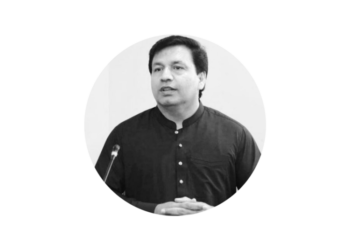![]() Follow Us on Google News
Follow Us on Google News
The failure of recent public rallies in Islamabad and Lahore, compounded by a notable lack of public interest, has derailed the provocative agenda of the Pakistan Tehreek-e-Insaf (PTI). Despite concerted efforts to stir unrest and instability, the party has failed to achieve its objectives. This growing disconnect between the PTI and the public is indicative of a broader shift in political dynamics, as the once-popular movement struggles to galvanize support. Once again, PTI leadership, in its increasingly desperate attempts, planned to disrupt peace in Rawalpindi under the guise of protest. However, the proactive measures taken by law enforcement thwarted these plans, forcing Khyber Pakhtunkhwa Chief Minister Ali Amin Gandapur—known for his inflammatory rhetoric—to retreat from Burhan Interchange without accomplishing his objectives.
This pattern of behavior from Gandapur is not new. Previously, he arrived late to the Sangjani rally, missed the Lahore rally entirely, and ultimately failed to attend the Rawalpindi protest. This consistent inability to effectively lead or participate in key political events reveals a deeper issue within PTI’s leadership. While the party appears eager to exploit the frustrations of Pakistan’s youth by pushing them into chaotic confrontations, its leadership often distances itself from the consequences. PTI, once a movement fueled by the aspirations of the youth, now finds itself increasingly alienated from the very demographic it once championed.
The continued failures of these political demonstrations have further exposed the troubling mindset of Gandapur. His recent speeches have unveiled a dangerous level of antagonism toward the state, one that mirrors the incitements made by PTI’s founder during the violent events of May 9. The threats and incendiary language employed by the Chief Minister go beyond the bounds of acceptable political discourse, venturing into territory that is alarming even by the standards of political opposition. Gandapur’s rhetoric, which includes references to armed rebellion, is disturbingly reminiscent of the kind of language used by external adversaries rather than by a leader entrusted with public office. His recent video address, in particular, is rife with statements that are not only unbecoming of a provincial leader but also pose a direct threat to national security and unity.
At a time when other provinces are focused on development, economic growth, and social stability, Khyber Pakhtunkhwa’s leadership seems intent on pursuing an agenda rooted in conflict and division. Gandapur’s threats of violent disruption to the development processes in other provinces are particularly concerning. His explicit mention of resorting to violence, including the use of firearms, indicates a shift toward an extremist stance, raising serious questions about the future of governance in Khyber Pakhtunkhwa. The Chief Minister’s rhetoric is not merely inflammatory; it is a clear signal of a potential move toward armed insurrection, a deeply troubling prospect for a leader who represents a key provincial government within Pakistan’s federal system.
What is increasingly apparent is the absence of a coherent strategy within the provincial government to address the economic and social challenges facing Khyber Pakhtunkhwa. The province continues to suffer from high levels of poverty, unemployment, and economic stagnation, yet Gandapur and his administration seem fixated on deflecting attention from these pressing issues by creating political distractions. The provincial leadership has demonstrated neither the competence nor the will to tackle the real problems confronting the people of Khyber Pakhtunkhwa. Instead, they have chosen to engage in political theater, using inflammatory language and provocative actions to divert attention from their governance failures.
This failure of leadership is particularly stark given the lawlessness and instability that currently plague Khyber Pakhtunkhwa. It is one of the provinces most severely affected by violence, insurgency, and sectarian conflict. Rather than contributing to national instability, the provincial government should be focusing its efforts on improving security within its own borders. Urgent action is needed to resolve the sectarian conflict between Shia and Sunni communities in Kurram district, which has escalated into a significant source of violence and displacement. In addition, there is a pressing need to enhance the capacity of local law enforcement and security forces to restore order and protect civilians. Collaboration with the federal government in these matters is essential, but Gandapur’s administration has consistently failed to engage constructively with national efforts to address these issues.
PTI’s leadership, particularly that of Gandapur, is increasingly isolated as a result of its divisive and destructive rhetoric. Public confidence in the party has waned, as citizens and commentators alike express growing concerns over PTI’s long-term vision and its role in fomenting political instability. The Chief Minister of Khyber Pakhtunkhwa has become a focal point of this criticism. Rather than prioritizing the welfare of his own province, Gandapur has devoted his energies to destabilizing other regions. This behavior has raised serious concerns about his commitment to governance and public service. Gandapur’s inflammatory speeches and actions suggest a deliberate strategy to provoke a national crisis, one that could lead to widespread violence and potentially catastrophic consequences for the country.
The deliberate attempt to manufacture chaos begs several important questions. First and foremost, what external influences or interests are guiding these actions? What are the underlying motives behind Gandapur’s provocations, and what does he hope to achieve by pushing the nation toward greater instability? Why does the Chief Minister of Khyber Pakhtunkhwa, using provincial resources, continually target cities across Pakistan with disruptive and violent tactics?
Furthermore, how can a leader, entrusted with the welfare of millions, remain oblivious to the rampant corruption, soaring inflation, and pervasive lawlessness within his own province? Mobilizing armed militias to target Islamabad, Lahore, and Rawalpindi is not only irresponsible but also detrimental to the province’s long-term stability. Gandapur’s actions raise serious questions about his priorities and his ability to govern effectively.
The people of Khyber Pakhtunkhwa are justified in asking: where is the economic agenda for the province? What has been done to address the public’s needs and improve living standards? Despite repeated promises, the provincial government has failed to deliver meaningful reform or development. Corruption remains rampant, and the public is left wondering whether their leaders are more interested in political grandstanding than in actual governance. These questions are now at the forefront of the public discourse, as the people of Khyber Pakhtunkhwa, along with the rest of the nation, await answers that are long overdue.













![Israeli soldiers work on tanks at a staging area in northern Israel near the Israel-Lebanon border [Baz Ratner/AP Photo]](https://mmnews.tv/wp-content/uploads/2024/10/Israeli-soldiers-at-Lebanon-border-75x75.jpg)

















